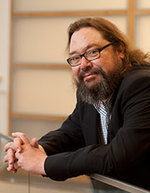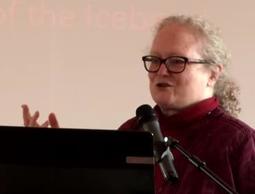2017 Keynote Speakers
|
Theodore Bestor
Reischauer Institute Professor of Social Anthropology and Director of Edwin O. Reischauer Institute for Japanese Studies, Harvard University "Washoku Far and Near: Culinary Heritage and Global Food Culture" Please click here for presentation abstract |
Victoria Bestor
Executive Director of the North American Coordinating Council on Japanese Library Resources "Doing it Digitally: Creating Curriculum and Course Projects using Digital Tools" Please click here for presentation abstract |
Many are familiar with the Routledge Handbook of Japanese Culture and Society which Ted and Vickey Bestor co-edited with Akiko Yamagata (Routledge, 2011). An earlier major project on which they collaborated (with Patricia Steinhoff) is Doing Fieldwork in Japan (University of Hawai’i Press, 2003).
Ted Bestor is also well-known for his Tsukiji: The Fish Market at the Center of the World (University of California Press, 2004) whose Japanese edition appeared three years later. His current research focuses on Japanese food culture and, in particular, on the globalization of Japanese cuisine and its intense popularity throughout the world, as well as in UNESCO’s recognition of Japan’s traditional cuisine (washoku) as an item of Global Intangible Cultural Heritage.
Vickey Bestor joined the North American Coordinating Council on Japanese Library Resources in 1999. Founded eight years earlier, the Council works closely with librarians, faculty, and funding agencies to strengthen Japanese language collections and to promote access to information in all forms and formats. It collaborates closely with Japanese institutions, leading organizations in North America, and globally throughout the fields of Japanese studies to develop consortial relationships, to create and disseminate services. The Council provides open access to individuals and groups who do not have Japanese resources available, and develops online instruction on the efficient navigation and use of the resources such users require.
Ted Bestor is also well-known for his Tsukiji: The Fish Market at the Center of the World (University of California Press, 2004) whose Japanese edition appeared three years later. His current research focuses on Japanese food culture and, in particular, on the globalization of Japanese cuisine and its intense popularity throughout the world, as well as in UNESCO’s recognition of Japan’s traditional cuisine (washoku) as an item of Global Intangible Cultural Heritage.
Vickey Bestor joined the North American Coordinating Council on Japanese Library Resources in 1999. Founded eight years earlier, the Council works closely with librarians, faculty, and funding agencies to strengthen Japanese language collections and to promote access to information in all forms and formats. It collaborates closely with Japanese institutions, leading organizations in North America, and globally throughout the fields of Japanese studies to develop consortial relationships, to create and disseminate services. The Council provides open access to individuals and groups who do not have Japanese resources available, and develops online instruction on the efficient navigation and use of the resources such users require.


